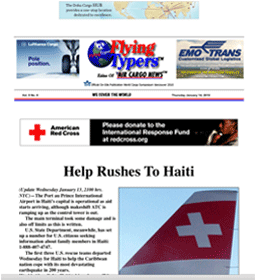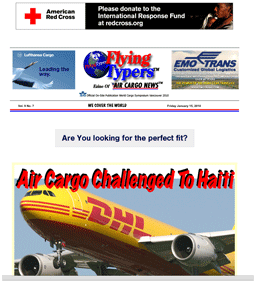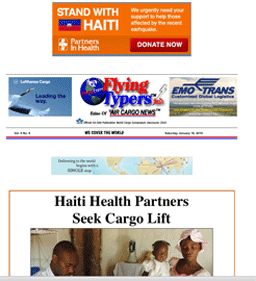What
Will Happen In 2010?
Part Deux
Once again the best
and brightest in air cargo jump into the breach, go out on a limb and
generally share without reservation (or compensation) a bird's eye view
of the new year and decade just begun, up front and personal and unvarnished.
Everybody wants to know what to expect
and so this series continues offering you an opportunity to contribute
your thoughts around a simple question:
“What Will Happen in 2010? Write
to me geoffrey@aircargonews.com
and you will be included.
Best of all the whole world of air cargo
will share your view.
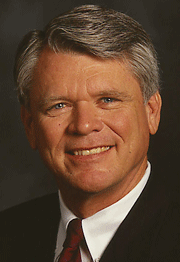 Jim
McKeon Jim
McKeon
Vice President Cargo
Continental Airlines
FT: What
is going to happen in 2010?
JM:
Well,
as far as 2010, who really knows?
I ask the question frequently of
customers and the best I can get is cautious optimism.
No one really seems to want to project
beyond the first half of the year.
Can't say I blame them.
Most everyone holds back because
of the employment picture.
The consensus is growth for first
two quarters just because last year's numbers were so bad.
FT: How
successful have your initiatives from 2009 been?
JM:
Our
specialty sales initiatives have helped.
The areas of focus have been COSecure,
Climate Secure and of course PetSafe.
Success has also been realized by
working in the old standard arena of the "next ten days"
business cycle.
While we all like to work on those
business commitments that are on the long-term horizon, we also
have to focus on the here and now and what we can effectively
compete for in the upcoming week.
FT: What
can/should everyone in air cargo do to make the industry better?
JM:
While
we are concerned about climbing out of the recession we need as
an industry to make sure we keep focused on the 100% screening
demands of air cargo effective on Aug 3, 2010.The more customers
we get enrolled in the CCSP the better off we all will be.”
|
 Dirk
Steiger Dirk
Steiger
CEO
Aviainform Consulting GmbH
Frankfurt Germany
FT: What
is going to happen in 2010?
DS: Even
if business continues to normalize we do not expect a full recovery
to previously already achieved figures. However, with a decent
growth rate of 3% over 2009, European air freight providers will
likely have a better business climate throughout 2010.
FT: How
successful have your initiatives from 2009 been?
DS: Like
most of our clients we’ve had to adjust our cost structure
radically, which unfortunately included the redundancy of some
staff members.
On the other hand we have been able
to sign up some new accounts, which will help us to recover from
the 2009 slowdown of sales.
FT: What
are some things you are doing differently than before the financial
crises?
DS: Like
other service-driven businesses our largest single cost factor
is labour. But as labour legislation is complex in Germany we
will continue to turn fixed into variable costs.
We all need to work much harder
than before to earn money. And it doesn’t matter where you
are located and which role you fulfil in the air cargo chain.
FT: What
can/should everyone in air cargo do to make the industry better?
DS: We
have to realize that we are not in competition with ocean freight
rather than being a different service at different rates and costs.
Both, air and ocean are complementary
to each other! Put reliability as your priority No 1 and be honest
to your clients / service partners. Think of what you can do to
increase your business while at the same time reduce emission
and make the planet greener.
|
 Aleks
Popovich: Aleks
Popovich:
Senior Vice President for Industry Distribution
and Financial Services.
IATA
FT: What
are your priorities for 2010?
AP: “1.
Protect the air cargo industry’s money.
Over USD$28 billion of the industry's
money flows through our CASS system and we must continue to ensure
that this money is protected despite the pressures of the current
recession on airlines, agents, and banks. With a CASS default
rate of less than 0.02%, the message is that we are sustaining
the quality of our CASS operation. During 2010 we expect to have
passed the 100 mark in new CASS operations (i.e. exports, imports,
domestics), with most of these having been delivered in the last
five years.
2. Deliver air cargo supply chain transformation.
We aim to deliver our e-freight
mandate from the IATA Board of Governors by implementing the e-freight
standard in a total of 44 countries / locations and 76 airports.
We also aim to have piloted Secure
Freight in Malaysia and extended to other pilot locations.
3. Deliver air cargo supply chain standards.
A major push during 2009 as part
of e-freight, has been implementing standards to eliminate the
need for the paper Air WayBill. This work is the result of a strong
FIATA - IATA cooperative effort, and the e-AWB has been recently
endorsed as an IATA-recommended practice.
We are currently awaiting U.S. Department
of Transportation approval of the e-AWB Model Agreement. During
2010, as part of our e-freight program we aim to promote industry-wide
implementation of the e-AWB. We will also continue to extend XML
standards to apply to more e-freight documents.
During 2010 we plan to extend our e-freight standard operating
process to include Secure Freight.
FT: New
initiatives?
AP: While
we certainly need to focus what is already on our plate, we are
also looking for new ways to drive further industry benefit. A
potential area of opportunity may be simplifying the business
of industry air cargo tariff distribution.
FT: Please
describe agenda and importance of IATA World Cargo Symposium March
8-11 2010 Vancouver March 8-12 ?
AP: The
theme of the fourth IATA World Cargo Symposium will be: "Bounce
Back - Rebuild for the Future".
The agenda will include a plenary
focusing on assessing when and how our industry will bounce back,
followed by 14 topical tracks covering: Cargo Executive Summit,
Economic Outlook, e-freight, Quality (Cargo 2000), Secure Freight,
Customs, GHAs, Distribution, Revenue Optimization, Environment,
Dangerous Goods, Air Mail, Time and Temperature, and ULD Management.
FT: Why
participate?
AP: Well
it's one cargo event in our industry where commitments are made
to improve the state of the air cargo industry, and promises are
delivered for reporting at the following year's event. If you
want something to happen for the good of the industry - then be
there and make your challenge. You could find it on the list of
IATA Cargo actions for 2010.
Scanning the wide range of our
topical tracks, you can be sure we have carefully designed the
World Cargo Symposium to respond to the needs of "all classes"
of air cargo, including shipper, forwarder, carrier, GSA or customs
operation with roles from these organizations ranging from executive
to operational subject matter.”
|
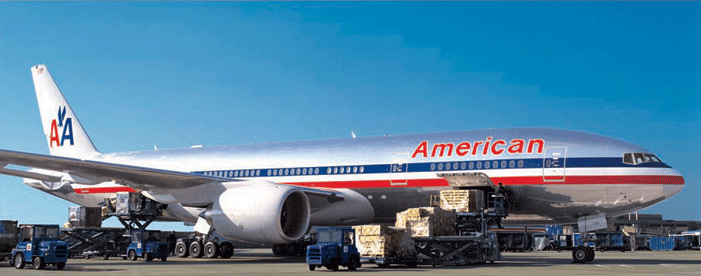 |
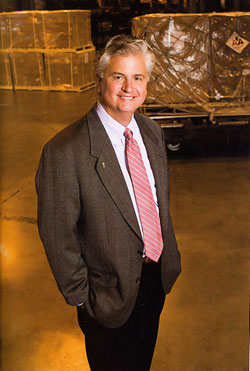 Dave
Brooks Dave
Brooks
President
American Airlines Cargo
FT: What
is going to happen in 2010?
DB: Plenty.
100% screening on passenger aircraft
is probably at the top of the list. And we’ll likely see
TSA reaction to the Christmas passenger security incident in the
air cargo environment. While August 1, 2010 is the magic date
for the 100% threshold, the next important date is August 2, 2010—that’s
when the industry will start the deafening drumbeat to eliminate
the “known shipper” rule.
On the commercial side, business is already
starting to pick up, but we’re looking at three years to
recover trends from prior years.
FT: How
successful have your initiatives from 2009 been?
DB: I’d
give us a B+/A-. Service levels at new heights—our luscious
new Expedite TC product successfully launched, gains with our
reengineering project Everest, new Customer Service Centers at
key gateways—and we proudly saw our own Mark Najarian tapped
to run AA’s entire operation at JFK.
FT: What
are some things you are doing differently than before the financial
crises?
DB: Eating
more macaroni and cheese.
FT: What
can/should everyone in air cargo do to make the industry better?
DB: Listen
to customers more. Then act on what they tell you.
|
Barry Hansen
Flying Tigers Line
Air Cargo Consultant (Retired)
 I
think that the trend will be more global manufacturer direct to
consumer shipping, good for the integrators. I
think that the trend will be more global manufacturer direct to
consumer shipping, good for the integrators.
Why should an electronics store stock huge numbers of flat screen
TV's?
Take the order and have a time definite
delivery to the consumer’s home with installation.
It is being done now and will expand
as a logistics service.
In the 1970's Flying Tigers ran
a study that showed that 75% of what they would transport in five
years  time
hadn't been invented yet. time
hadn't been invented yet.
Concept is still valid with much
condensed time frame. |
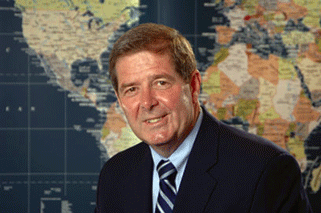 Jack
Lampinski Jack
Lampinski
Cargo Manager- the Americas
Swiss World Cargo
FT: What
is going to happen in 2010?
JL:
Considering
the substantial improvement in demand that we have seen during
the last quarter of 2009 I think that 2010 holds some promise.
How long it takes the industry to get back to the levels of 2007
and early 2008 are anyone’s guess, but we will surely see
much better results than last year.
Cargo security will certainly be
a hot topic this year and the potential impact of the TSA directive,
mandating 100% screening of belly cargo on international flights
in August, may very well be underestimated. The TSA’s allowance
of multiple options in the way the current volume of cargo being
screened by carriers and handling companies is being measured
has not helped the industry. These measuring options have produced
commercial inequities between carriers and, in my opinion, have
also resulted in less international cargo actually being screened
now than was the case prior to the directive. All of this has
also created a high level of complacency throughout the logistics
chain. It will all come to an end in August when the current loopholes
are removed and the playing field is leveled. 100% screening,
while an absolute necessity, will clearly result in increased
costs and added complexity at every level of the supply chain.
FT: How
successful have your initiatives from 2009 been?
JL:
After
falling off a cliff in October of 2008, throughout 2009 we paid
a lot of attention to developments in the markets and we continually
challenged and reassessed the way we managed our business. We
ended up sticking to our core strategy, focusing on special products
and on smaller sensitive shipments from customers with high service
requirements. We believe that we made the right decision. There
was much less volume decline in special products during the crisis
than there was with general cargo and consolidation business.
The yields in the special products sector also remained close
to 2008 levels. While we moved our pricing in reaction to lower
demand, early on in 2009 the market rates for consolidation and
non-critical general cargo shipments fell below our production
costs.
We walked away from business that
no longer made sense and we chose not to enter the war with carriers
fighting over loss making traffic. This clearly hurt our load
factors but also resulted in lower handling costs.
At Swiss WorldCargo, contribution is king and that is how we measure
our success.
Not really knowing how long the
recession was going to last, we also took steps to lower our operating
costs, or at least make sure that we kept them in check. In many
cases we renegotiated contracts with our suppliers, especially
those having a business that is impacted by our volumes. We looked
for ways to lower their costs, and ultimately lower our costs,
so that we were able to be more competitive in the market.
In order to prevent layoffs during
the downturn, we also took some temporary cost cutting measures
on the personnel side.
In the Americas, we took different
actions in different countries depending on local labor laws,
and with the clear understanding that the measures we took could
not result in lower service levels for our customers.
While this was a little painful for many, it preserved jobs, showed
solidarity within the company and played a small part in ensuring
the profitability of SWISS.
While the passenger side of our
business was not as heavily impacted as the cargo side, SWISS
also took measures to reduced costs during the crisis. In many
gateways, daily flights were reduced by one or two frequencies
a week. As with most belly carriers, oftentimes the needs of the
passenger department are not in line with those of cargo. Nonetheless,
our customers that required daily uplift were very understanding
and, in near all cases, they adjusted production to match our
schedule. Most of the reduced frequencies have now been restored
and SWISS has also recently announced that on June 2nd we will
start a new service from Zurich to San Francisco.
All of the above initiatives seem
to have paid off, as market intelligence indicates that although
far from our expectations when originally planning the 2009 budget,
SWISS and Swiss WorldCargo, enjoy much better results than the
majority of our competitors.
FT: What
are some things you are doing differently than before the financial
crises?
JL:
Not
really knowing exactly how much the business will rebound during
2010, more than doing things differently, we are doing things
with a higher degree of urgency and intensity.
We try to be creative by providing
products with service levels and reliability that cannot be matched
by our competitors. An example is a recently introduced 60 minute
tail-to-tail transfer option in Zurich for our express product.
Throughout all divisions of SWISS
we have adapted the Japanese Kaizen philosophy for improvement.
During 2009 we held several one
week cargo related workshops attended by a cross section of our
employees from all over the world, as well as staff from our vendors
and other members of the Lufthansa Cargo Group.
In 2010, several additional workshops
are planned.
While this requires additional
expense, we have found that, without exception, the exercises
have produced cost savings as well as improved service to our
customers.
We are currently sending members
of our management team along with key specialists within our organization
to observe and analyze processes in gateways across our network.
The objective of the visits is to identify best practices, improve
efficiencies, streamline processes, and standardize organizational
setups to whatever extent that may be possible.
The above said, we realize that
to remain successful we have to continue to keep getting better
at everything we do, but at a much faster pace than in the past.
FT: What
can/should everyone in air cargo do to make the industry better?
JL:
Regulatory
agencies need to confer more with user groups and industry experts
before implementing programs and rules that make little sense,
are impossible to enforce, produce inequities between organizations
and do not deliver the intended results. Although I am quite critical,
I also believe that we are finally seeing some progress in this
area.
Shippers need to understand that
forwarders have to be paid a reasonable amount for their value
added services. Forwarders need to understand that continually
pressuring carriers to transport goods at or below costs is not
a sustainable long-term practice. It will produce more failures,
more industry consolidation, fewer choices and much higher prices.
At least those are the results that would be expected in a normal
industry, and I admit that the airline business is far from normal.
There seems to be no end to start-ups that can somehow find investors,
buy an airplane and fly it to New York.
Carriers have to become more conscious
of their costs and price their services accordingly (that’s
a polite way of saying that).
I guess that if the majority of
carriers were following this practice, the airline business wouldn’t
have lost ten or eleven billion dollars in 2009. Let’s hope
that improved conditions expected during 2010 will bring a little
pricing sensibility to the market. I’ll keep my fingers
crossed but won’t bet on it! |
 Gordon
Feller Gordon
Feller
Resident Thinker
Air Cargo News FlyingTypers
 Air
Cargo will see a further concentration of freight flows on a limited
number of cargo gateways in 2010. Air
Cargo will see a further concentration of freight flows on a limited
number of cargo gateways in 2010.
The share of Top 30 airports in
regard to worldwide handling volume of air freight, accounting
for over 50% in the past years, will further increase.
The consolidation trend has been
intensified by the recent recession.
Declining demand and yield forced
carriers to optimize and adjust their networks in regard to capacity
and costs.
Reducing off-HUB capacities where
load factors are lower is first choice for cutbacks as they are
less important for a functional network.
Their discontinuation will hurt
operation only marginally, but may reduce costs significantly.
A further bundling of freight flows
will generate economies of density and scale yielding lower cost
per unit.
Due to decreasing off-HUB operation
and an increasing bundling of cargo flows even more freight will
be channeled through cargo gateways of both, air carriers and
freight forwarders.
With respect to oil prices, in the
first half of 2010 a range between USD$70 and USD$100 is expected.
In the mid-term, increasing scarcity
due to deterioration of inventories and the absence of regular
supply adjustment with increasing capacity utilization by OPEC
countries may lead to oil prices from USD$80 to USD$120 in the
second half of 2010 while Fuel Surcharges are likely to rise in
lockstep with increasing oil prices.
And while shippers are becoming
“more green” the industry in common should not forget
to work on solid solutions of how to reduce their own emissions.
 This
challenge will take huge financial commitments (to invest into
new equipment, etc.) that require, on the other hand, solid and
decent earnings. This
challenge will take huge financial commitments (to invest into
new equipment, etc.) that require, on the other hand, solid and
decent earnings.
|
 Kyle
Betterton Kyle
Betterton
VP Cargo
United Airlines
FT: What
is going to happen in 2010?
KB:
We
believe we have survived the worst of the global economic recession
and expect slow but steady growth in air freight in 2010 in line
with IATA’s projections. United Cargo’s total freight
miles increased over 19% in the fourth quarter of 2009 compared
to a decline of nearly 11% in the third quarter. This volume spike
also allowed a welcome improvement in yields after a very challenging
period. Some of this was seasonal traffic, of course, but we still
believe it represents the first signs of a fundamental recovery.
FT: How
successful have your initiatives from 2009 been?
KB:
United
Cargo continues to invest in our customers despite the challenging
economic environment.
One of the most successful investments
in our customers is our new Temp Control service.
After a rigorous 18-month pilot,
United Cargo launched Temp Control worldwide in July 2009. United
quickly became an industry leader in temperature-controlled shipping
due to our 100% operational execution, the strength of our network
and widebody capacity, and our best-in-class 24/7 customer service.
In 2010, we are expanding Temp Control to more cities and more
customers around the world.
Another investment we made in our
customers was the deployment of our enhanced Issue Resolution
Process. Issue resolution is improved through teamwork between
a dedicated team focusing 24/7 solely on solving customer issues
and “issue owners” in station locations. Customers
receive more timely proactive alerts when issues arise, issues
are resolved more quickly and customers are updated more frequently
with clear definitions of next steps. Using a number of new reports
and analytical tools, United Cargo examines every issue to learn
why the issue happened and how to prevent a recurrence. To help
fill in the revenue gap caused by the global economic downturn,
we executed a series of initiatives to improve our share of the
U.S. domestic mail market. These proved very successful and United
is now #1 among all U.S. passenger carriers in domestic mail market
share.
FT: What
are some things you are doing differently than before the financial
crises?
KB:
United
led the industry in rationalizing capacity with reduced demand
in response to the global economic recession. Like many in the
industry, we focused on cost containment efforts to allow us to
remain viable in the marketplace. Several initiatives to reduce
costs and improve profitability were implemented, and we believe
these efforts will continue to pay dividends as the industry recovers.
Also, the crisis underscored the
importance of something, which has always been our focus –
engaging with and listening to our customers to ensure we are
providing the service and the quality they need.
FT: What
can/should everyone in air cargo do to make the industry better?
KB:
First,
everyone involved in air cargo must realize the great value and
absolute necessity of working together to improve the quality
and efficiency of our industry.
We all recognize that human and
economic resources are limited, and when the industry is in “crisis
mode” it’s easy to lose focus on initiatives that
have a longer-term payoff. Now that the worst is behind us, collaborative
projects such as e-freight, Cargo 2000 and efforts to modernize
and streamline technology deserve the participation and support
of all. These strategies will allow air cargo to emerge even stronger
as the global economy recovers.
Also, our industry faces a huge
operational challenge in the execution of the 100% screening mandate
in August 2010. We believe that distributing the security requirement
across air carriers, forwarders and shippers through the TSA Certified
Cargo Screening Program is the best way to meet this formidable
challenge. As volumes continue to increase, maximum participation
and support of the CCSP is crucial to our industry’s ability
to meet the 100% mandate without a negative impact on service.
|
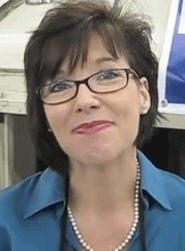 Lisa
Schoppa Lisa
Schoppa
President
Animal Transport Association
FT: What
is going to happen in 2010?
LS:
The
ATA hired a new management firm last year and we have some great
plans already underway.
The Drohan Management Group in Reston,
VA is overseeing our day-to-day duties and their in-house graphics
and technology teams have already made a huge impact on us.
We’ve just launched our “new
look / logo” (December) to our membership group and we’re
currently working on a new website design.
Our newly renovated site will also
have a new address, which will be much easier to remember!
The new site (www.animaltransportationassociation.com)
will launch by the end of February 2010 and should be much more
user-friendly.
It will also be freshly updated
and will include several new pieces of information.
The ATA’s mission is to “improve
the welfare of animals in transport” and we do that through
our members’ and industry’s research, education and
training.
Our Annual Conference is scheduled
in Fort Lauderdale, Florida this year from May 9 -12 at the Marriott
Harbor Beach Hotel.
The venue is absolutely gorgeous
(16 private acres of beachfront, beautiful grounds, and a $25
million USD renovation was just completed) and we have a great
group of speakers lined up in 3 separate track sessions based
on species.
The ATA Annual Conference moves
around the world each year, so we’re in the USA this year
but have already confirmed early May 2011 in Brussels and 2012
(April/May time frame) we are scheduled to hold our conference
in Shanghai.
ATA’s Education Committee
has several webinars planned for the year. The next one is coming
up in March 2010 and will focus on “Fitness for Transport”.
Experts will present valuable information to participants in knowing
what signs to watch for in being fit for transport. This webinar
is free to participate in and attendees will have the opportunity
to apply for membership to the ATA and the first year’s
dues will be waived. But you must participate in the webinar!
Watch our website (current site is http://www.aata-animaltransport.org/)
for registration details.
In conjunction with our new website
launch, our Education Committee is also working with experts in
every mode of transport and all species on “Best Practices”
guides for transporting animals.
These guides will be available to
members only at our new website along with other industry white
papers, research studies, etc. We are really working to provide
great benefits to our members this year. And I think that our
members will be very pleased with our progress! We hope that more
of our industry will join us and support our worldwide goal of
safe and humane transport of all animals. ATA will continue to
make an impact in the world of animal transport as we reach out
more and more to industries such as Zoological and Exotics (zoo
animals, birds, etc.), Equine (race horses, polo ponies, breed
stock, slaughter horses, etc.) along with Livestock (includes
cattle, sheep, swine, poultry, etc.), Laboratory/Research animals
(mice, rabbits, primates, etc.) Companion Animals (dogs and cats)
as well as Fish, Reptiles, Mammals, etc.
FT: How
successful have your initiatives from 2009 been?
LS:
We
set some rather large goals for ourselves in 2009 and when the
global recession hit, we were a bit nervous about accomplishing
those goals. However, we can look back now and see how successful
our year has been. Our normal conference schedule is to hold a
“North American” conference followed by a “European”
location and every third year we try to go to some location in
the world where we know that animal transport is important and
where we think we can reach new members, new speakers, etc. And
2009 was just such a year. We planned for Sydney, Australia (about
3 years in advance) for May 2009. And after the recession hit,
we were hoping to break even on conference exhibits because we
knew that attracting our American and European members down under
could be a challenge because of the expense. After it was all
completed in May 2009, we had a very good attendance and had a
profitable conference. Our Australian members did a great job
of pulling together wonderful speakers and presenters and the
venue was gorgeous. Our Awards Dinner was held at the Sydney Opera
House on the harbor, which was only a few blocks walking distance
from our hotel.
Additionally, the organization has
continued to grow and evolve and we changed management companies.
We were very impressed with the
Drohan Management Group in Reston, Virginia and the transition
to them in August 2009 couldn’t have gone better. We were
prepared for upsets, mistakes and little disasters but nothing
like that happened. It was absolutely seamless. And now we are
poised to grow with them and make vast improvements in our professional
image. The new look/logo and new website are just the tips of
the iceberg.
FT: What
are some things you are doing differently than before the financial
crises?
LS:
Our
Board of Directors meetings have evolved to 3 per year (from 4)
and we are allowing them to participate via webinar in 2 of the
3 (only 1 meeting per year must be in person).
Travel expense and time away from
the workplace is a limited resource at many companies, so we are
being respectful of their first priorities. Additionally, the
Board has relooked at the annual operating budget and we’re
working to ensure that we are good stewards of our member’s
monies. We have made some cutbacks to ensure that we can remain
solvent for many years. This Association nearly went broke a few
years ago, and several past Board members and Past Presidents
literally pulled money out of their own pockets to pay the expenses.
We feel a huge obligation to these men and women to keep the finances
in order and to ensure that our members will continue to have
a voice in the years to come! Our Treasurer, Chris Santarelli
from Mersant International in NYC is a wonderful asset to our
group and is doing a fantastic job ensuring our Board understands
where every penny is coming from and where it’s being spent,
so we can make wise decisions!
We’ve been able to negotiate
for an excellent rate for our Annual Conference hotel. That Marriott
Harbor Beach hotel normally has rates that run from $310 - $550
USD per night has agreed to our rate of $184 per night. It’s
a luxurious resort and spa destination. The surrounding area has
a lot to offer but honestly, you won’t need to leave the
hotel property! This is the right year to attend our conference!
FT: What
can/should everyone in air cargo do to make the industry better?
LS:
There
are some very serious concerns in the animal transport industry
right now.
First and foremost, IATA’s Live Animal Committee (LAPB)
is putting more of a focus on the transport of laboratory and
research animals at the request of the OIE.
Because of the fear of animal activism
around the world, many airlines have banned the transport of animals.
And this has put a huge burden on the industry and the inability
to move these animals between institutions for continued research
or just to ensure viable breeding stock/colonies. These animals
are necessary in cancer research, finding cures for other diseases
such as H1N1, diabetes, etc., and they play an important role
in animal health research too. Curing or preventing animal diseases
is essential to many of the world’s poor and emerging countries
that struggle to raise food for their citizens.
As a people, we need to use animal
models only when absolutely necessary and we need to ensure they
are treated humanely and safely. In transport, it is much safer
and humane to place an animal on a 4-hour cross-country flight
than to drive the animals over the road for days because of an
airline embargo. Or to continue to increase the cost of researching
new drugs by forcing pharmaceutical companies to charter aircraft
around the world to move a few animals because the scheduled carriers
have embargoed them. Research shows
that an overwhelming majority of the American population is in
favor of using animals ethically as research subjects and only
a small militant fragment of our society has caused such embargoes.
Airlines must realize that their decisions to “stay neutral”
is not actually being realized. Their decisions ‘not to
participate’ are detrimental to the welfare of these animals
and eventually to people around the world.
Food supplies in poor nations depend
on the advances being made in Veterinarian medicine and research,
and populations around the world are dependent on research to
help prevent and stop pandemics such as the H1N1 flu, bird flu,
etc.
Additionally, employing good and
humane practices is vital to improving animal transport. Employee
training programs should be part of every company’s daily
routine and there are plenty of companies who have experience
in these programs.
A good example in the world is ATA
member, LiveCorp Australia. They developed, paid for and implemented
training for the longshoremen that work the docks in the Middle
East who unload their large ships full of sheep and other livestock.
They knew this was a vital and the
weakest link to the safe movement of their animals, so they took
on the mission to improve this area. All of us should look for
ways to improve the logistics chain. In addition to being fast,
the logistics chain has to be safe and humane when animals are
involved. ATA members around the world are working hard to ensure
this is the case every time.
|
 James
Fernandez James
Fernandez
Vice President, Sales and Marketing
CHAMP Cargosystems
FT: What
is going to happen in 2010?
JF:
Caution
and uncertainty will remain throughout 2010 and tight corporate
governance will continue to be the mitigation.
The impact of upward adjustments
in interest rates on consumer spending will have a greater impact
on consumer price sensitivity and hence the air cargo market in
particular.
If yields cannot be raised and trade
lane sensitivity continues to be volatile it is likely that there
will be further airline/cargo operator consolidation.
I believe 2010 will be a year of
greater consumer austerity than 2009.
FT: How
successful have your initiatives from 2009 been?
JF:
The
investment in Cargospot has demonstrated the cost efficiencies
available to our customers through the use of a proven new generation
cargosystem.
In particular, being able to access
management information in a more useable and timely manner is
critical to our customers’ ability to make more effective
commercial decisions.
CHAMP Cargosystems maintained tight
commercial disciplines throughout and through both its community
centric commercial model and globally distributed customer base.
As such, CHAMP is in a good position
to weather the commercial storm and continue to invest in its
products and services.
CHAMP has extended our self-service
capabilities and electronic data exchange services to allow our
customers to further refine their business processes and reduce
cost.
Finnair is a great example of an
organization adapting itself to the challenging economic conditions
by improving its own processes and consolidating its suppliers
to reduce cost.
CHAMP now has a portfolio that spans
the end-to-end cargo cycle, allowing our customers and their partners
to improve processes while saving costs.
The CHAMP portfolio allows partners
to use the same platform to share information more accurately,
faster and at a more detailed level than ever before.
FT: What
are some things you are doing differently than before the financial
crises?
JF:
We
have introduced further commercial governance to track performance
against target and continue to look at mechanisms for improving
both efficiency and effectiveness. 2009 was particularly critical
in growing organically our own off-shore development capability,
allowing us to continue to develop our products more cost effectively.
Fortunately CHAMP is dedicated to the air cargo market and as
such remains focused on a long-term development and community
partnership strategy. At times of crisis a clear vision, strategy
and execution is critical.
FT: What
can/should everyone in air cargo do to make the industry better?
JF:
Less
talk and more focused action is required. Having clarity of vision,
a pragmatic approach to execution of strategy and a solid understanding
of how and where to realize benefits is essential.
Decision making should be quick and decisive, based on good data
and clarity of purpose and competitive advantage.
Decisions should also recognize
that we are an interdependent community and as such need to fight
the crisis with an understanding of the air freight "food
chain". There should also be recognition that greater commonality
in core processes will be of wider benefit to the industry being
able to interoperate at greater cost efficiency.
|
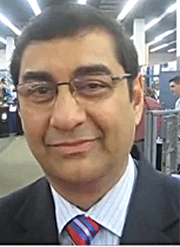 D.J.
Ghosh D.J.
Ghosh
President
American Friendship World Air Cargo Corporation
FT: FT:What
is going to happen in 2010?
DJG:
The
economy will definitely recover, and a lot of the growth will
be fuelled by the economies of China, India and Brazil.
FT: How
successful have your initiatives from 2009 been?
DJG:
Since
we are gradually attempting to build our framework for a world
class cargo airline according to our research and the industry’s
best practices, our initiatives will be successful in the very
long term.
We will patiently build our business
case and display it for the world to see on our website at www.american-friendship.com.
FT: What
are some things you are doing differently than before the
financial crises?
DJG:
We are definitely operating more conservatively, keeping debt,
overheads, and staffing levels very low; outsourcing as much as
possible, and concentrating on our core competencies. We continue
to spend significant sums, sourcing the globe for the best ideas,
technologies and industry practices.
FT: What
can/should everyone in air cargo do to make the industry better?
DJG:
Everybody
in the industry should train themselves to adopt a very long term
outlook for the air cargo industry, if there is to be any permanent
change in the way we do business.
The “VERY LONG TERM”
outlook should start with the very large shippers, who should
provide the logistics suppliers with very long term contracts
to give them the stability to both innovate as well as create
new platforms for cost reduction.
The biggest problem with this industry
is that everybody operates on short term contracts, which fosters
a “paycheck to paycheck” mentality.
|
 Guy
Fox, MBA, LCB Guy
Fox, MBA, LCB
President & CEO
Guy Fox & Associates
President Los Angeles Air Cargo Association
 In
the year 2009, everyone was trying to see where the dynamics were
taking them and in most cases it has been a reaction, as things
happen, but that has always been the case in air cargo. In
the year 2009, everyone was trying to see where the dynamics were
taking them and in most cases it has been a reaction, as things
happen, but that has always been the case in air cargo.
It has indeed been a tough year
with lack of business and lay offs, but it is also an opportunity
to make strategic plans for the future.
We have seen reduced capacity in
all modes of transportation, which has led to consolidation of
services.
Most of the freighters for air cargo
are sitting in a desert environment waiting for something to happen,
but the curve seems to be just starting up and perhaps some will
come back into service?
Consumers have not yet come back
to grips in buying, as they do not have the disposable income
they once enjoyed. Now it is hand to mouth and just buying the
essentials.
Inventories have been depleted and
the big chain stores are using the container ships as their warehouses
while in transit and doing immediate distribution on arrival.
In the past, where a big chain store
had an item that was coming sea freight and the manufacturer was
late, and because they had an ad breaking, they would switch to
air cargo, but in today's environment, they give a rain check.
The recovery is indeed taking place
and consumers will indeed start their buying process again and
we need to be prepared.
Airlines have reduced capacity and
are only taking belly loads.
They are contracting out the space
and the contractors are selling for double the price.
There are alliances, but that may
not be the answer going forward in certain respects.
I would suggest that in the future,
2010 and forward, that the airlines need to have a "Freighter
Service" where all airlines could pool their freight for
a single load.
I would call the venture "White
Freighter" with no logo so that all of the airlines could
use their own air waybills and customer service, but they would
all consolidate their freight on a single aircraft.
The airlines could collect their
own freight and delivery to the "Carrier" and then pick
up their own freight at destination.
If you think about it, it is a viable
alternative and cost saving device.
This way you would also not have
the backlog that was experienced in Asia this past Christmas as
the "carrier" could add capacity.
Perhaps another thing to think about,
and people think I am crazy, but . . . since the airlines in the
United States have gone to narrow bodied aircraft and the cargo
space is limited, they have switched to trucking for the most
part across the USA, so what about "Lighter than Air Vehicles"?
Say a 400-foot dirigible with a
ridged frame, lifting gas of helium, gyrostabilizers, aluminum
clad hull, with "bomb bay" doors that would take approx
30 air cargo containers into the infrastructure of the vehicle.
Take 2 days to go coast-to-coast,
fuel efficient, and gets the 60mph trucks off of the road.
I know it is a wild idea, but so
was FedEx.
 The Lighter than Air Vehicles were
a part of my MBA Thesis and the "experts" told me I
was wrong, but I still believe in the concept.”
The Lighter than Air Vehicles were
a part of my MBA Thesis and the "experts" told me I
was wrong, but I still believe in the concept.”
|
Geoffrey
What Will Happen In 2010 Continues
|


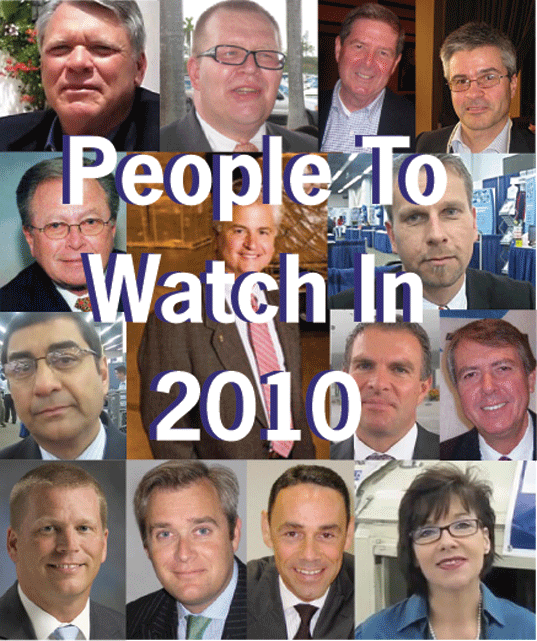
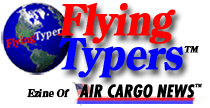
 Jim
McKeon
Jim
McKeon Dirk
Steiger
Dirk
Steiger Aleks
Popovich:
Aleks
Popovich:
 Dave
Brooks
Dave
Brooks Jack
Lampinski
Jack
Lampinski Gordon
Feller
Gordon
Feller Kyle
Betterton
Kyle
Betterton Lisa
Schoppa
Lisa
Schoppa James
Fernandez
James
Fernandez D.J.
Ghosh
D.J.
Ghosh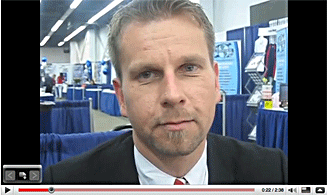
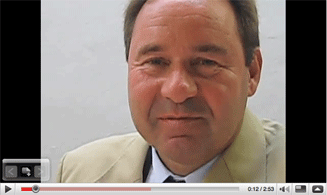
 Guy
Fox, MBA, LCB
Guy
Fox, MBA, LCB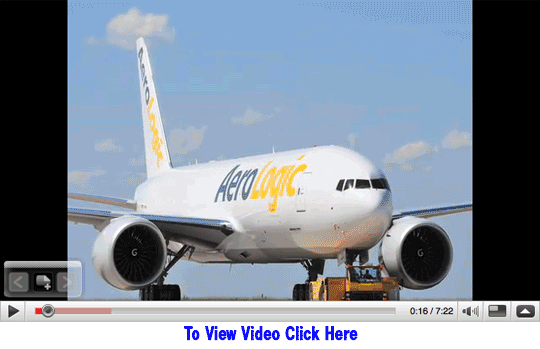
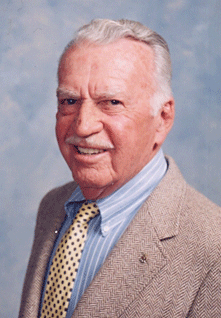 John
Boyd passed away on Jan 12, 2010.
John
Boyd passed away on Jan 12, 2010. 